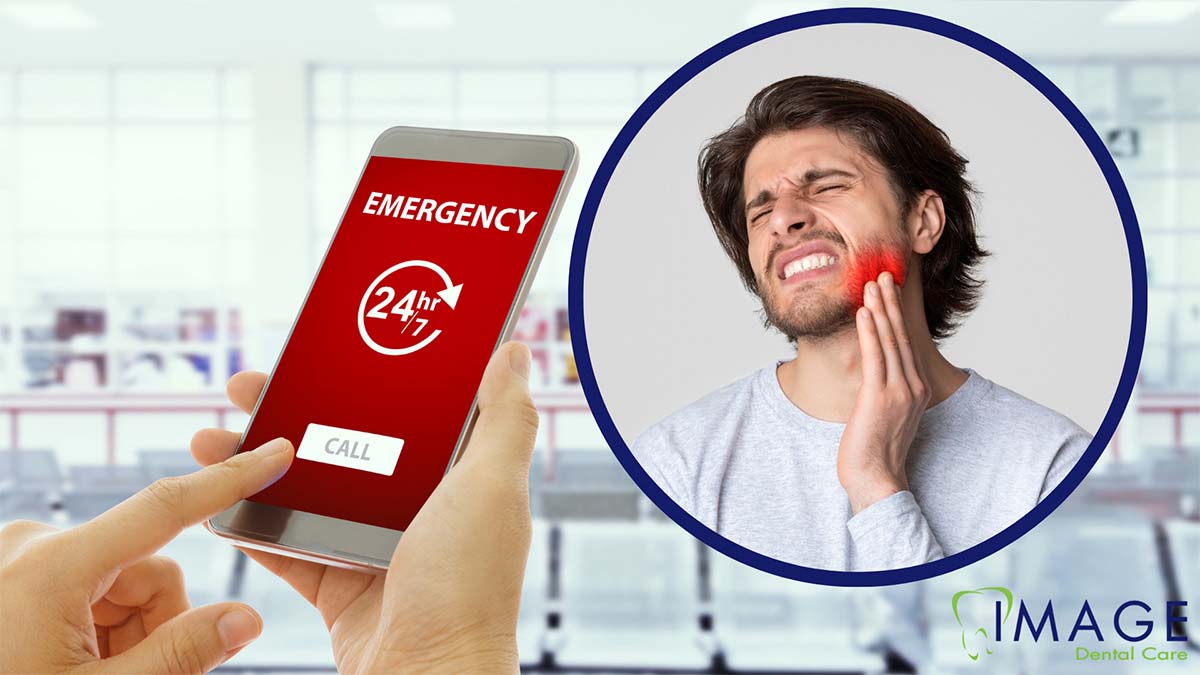
A dental emergency involves the teeth and surrounding structures and requires prompt treatment by a trained oral health professional.
These situations can jeopardize a patient's oral health, function, or appearance. Prompt intervention will help relieve extreme pain or avoid lasting issues.
Different Types of Dental Emergencies
- Understanding the various types of dental diseases can help with immediate decision-making. These include the following:
- Injury to the teeth or gums. Quick treatment can save a knocked out, loosened, or broken tooth.
- Severe toothaches. These could suggest an abscess or another serious infection that requires quick care.
- Painful inflammation. Swelling of the gums or cheeks may be due to an infection and shouldn’t be disregarded.
- Post-surgical complications. Patients with odd symptoms or complications after dental surgery should seek immediate attention.
Responding to Tooth Trauma
Trauma to the teeth requires quick thinking and immediate dental intervention. Here's how to respond to the most common injuries:
Knocked-Out Tooth
If a permanent tooth is knocked out, it's crucial to:
- Handle the tooth by the crown. Be careful not to touch the root as it can damage the cells needed for reattachment.
- Rinse the tooth gently to remove dirt without scrubbing.
- Store the tooth in the mouth, ideally between the cheek and gums, or in a container with milk or saliva, until you can reach a dentist.
Cracked Tooth
A cracked tooth can range from a simple craze line to a severe fracture exposing the nerve.
- Rinse your mouth with warm water.
- Apply a cold compress to the area to keep any swelling down.
- Seek immediate dental attention and provide as many details about the injury as possible.
Dislodged Tooth
A dislodged tooth is one that has been pushed out of its position.
- Use gentle finger pressure to try to reposition it.
- Bite down to keep the tooth from moving.
- Seek emergency dental care without delay.
Managing Severe Tooth Pain
A painful toothache can make concentrating on anything else nearly difficult.
- To relieve acute pain, rinse your mouth with warm water.
- Gently floss to eliminate any food or debris causing discomfort.
- If your cheek is swollen, place a cold compress on the outside.
- Take over-the-counter pain relievers as indicated.
- Avoid placing aspirin directly on the tooth or gums.
- Seek dental care as soon as possible. Chronic discomfort may suggest an underlying problem.
Dealing with Dental Infection
An oral infection, typically accompanied by significant swelling or persistent unexplained fever, requires quick attention to prevent the spread of bacteria and potentially fatal consequences.
Recognizing the Signs of Infection
In addition to apparent swelling, look for:
- Painful, visible abscesses on the gums
- Swelling on the face or cheek
- High fever with no apparent cause
What to Expect at the Emergency Dentist?
Expect the following when dealing with dental infections:
- A detailed assessment of your symptoms.
- Taking X-rays to determine the extent of the issue.
- Draining the abscess if necessary.
- Treating the infection with antibiotics.
- Following-up care to address the root cause, such as a deep cavity or periodontal disease.
Understanding Post-Surgical Complications
Complications can occur even after basic dental operations and shouldn’t be overlooked.
Signs of Problems After Surgery
- Persistent bleeding beyond the first day
- Prescribed drugs don’t reduce severe pain or edema
- Unexpected discharge or an unpleasant taste in the mouth
- Issues with your bite alignment
Contact your dentist immediately for further guidance if you encounter any difficulties. If you’re unable to reach your dentist, go to the emergency room.
Preventing Dental Emergencies
Steps to prevent unforeseen oral health problems include:
- Maintaining proper oral hygiene at home.
- Scheduling frequent dental checkups and cleanings
- Wearing a mouthguard during sports or other activities that may cause bodily damage.
- Avoiding biting hard food or using your teeth as a tool, such as opening bottles.
Emergency Dental Care in Red Deer, Alberta
Knowing the difference between a serious dental emergency and one that can wait for a regular appointment can help you navigate the situation calmly.
Awareness is essential, and the tips in this guide can help you gather the information and resources you need to deal with emergencies successfully and limit their long-term consequences.
When in doubt, always err on the side of caution and seek professional dental care.
Contact our team at Image Dental to know more about emergency dentistry in Red Deer, Alberta. We're here 7 days a week to help you with your immediate oral health needs.